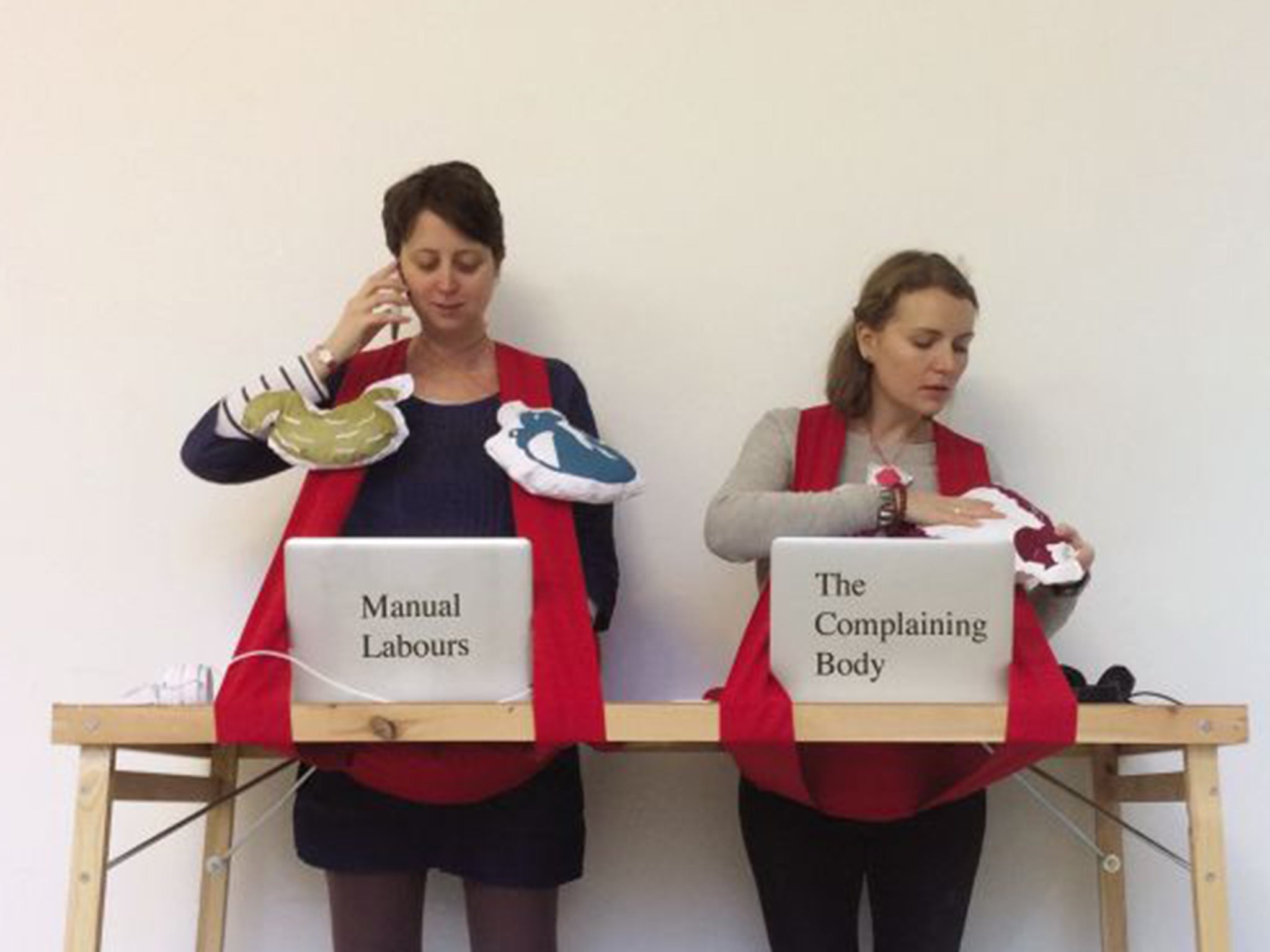Manual Labours: The Complaining Body: Exhibition explores the fine arts of moaning and listening
Researchers have spent 18 months studying what happens to the body when you complain, when you are complained at – and when you have to suppress complaints

The next time you make a complaint to a call centre, spare a thought for the person on the other end of the phone. They are likely to be sitting with fists clenched and leg twitching, according to researchers who have spent 18 months studying what happens to the body when you complain, when you are complained at – and when you have to suppress complaints.
To explore the findings, academics and curators have staged an art exhibition using everything from wall charts to a card game where players are urged to moan. Manual Labours: The Complaining Body opened on 6 February at the Peltz Gallery at Birkbeck, University of London.
Curator Sophie Hope talked to call-centre workers dealing with complaints to a London borough council, commuters on a busy railway platform in Worcester and staff dealing with student complaints in a UK university: “The emotional labour involved in listening to and managing complaints, the social and cultural conditions of complaining and the reasons we don’t complain – all have physical impacts on the body.”
Call-centre workers receiving complaints would often “leg-twitch”, the researchers found. Sometimes they would stand up and put their arms out in front of them as if they were being physically attacked.
“They were not able to stop the calls, so they would internalise it,” Dr Hope said. “Sometimes it would manifest itself in a physical way, maybe vomiting or diarrhoea. Others got headaches.”
The effect of complaining had varying emotional effects from relief “to a feeling of being squashed”. Gestures ranged from pursed lips to clenched fists and finger pointing. Many felt better if they were standing up.
Pasted on to the walls of the exhibition will be three images of the body, each labelled with the physical responses when someone complains, when they receive complaints and when they are unable to complain and forced to suppress it.
Dr Hope said: “We’ve commissioned art to show the complaining body – to try to translate the complexity of the conversations into a visual form.”
Join our commenting forum
Join thought-provoking conversations, follow other Independent readers and see their replies
Comments